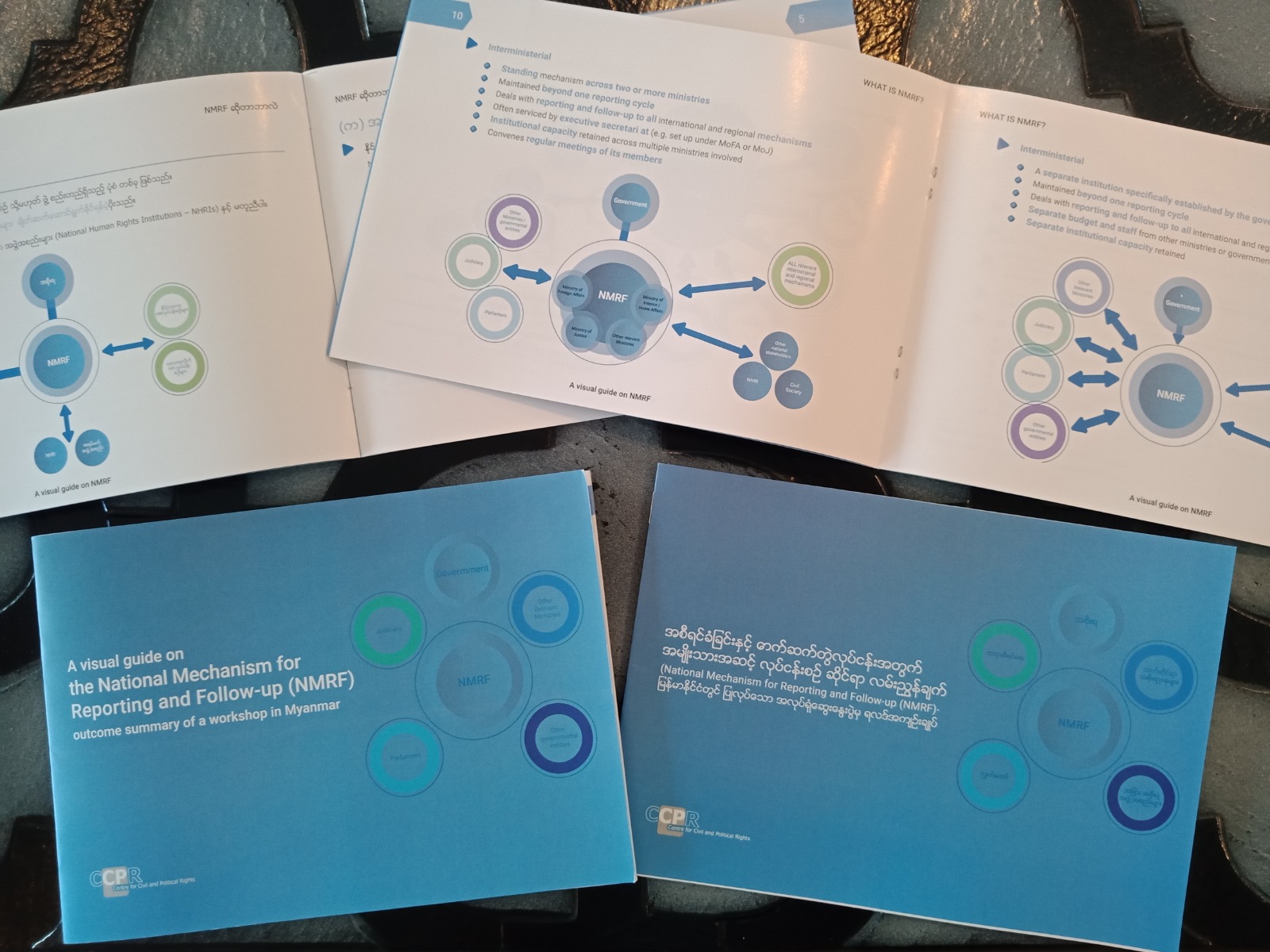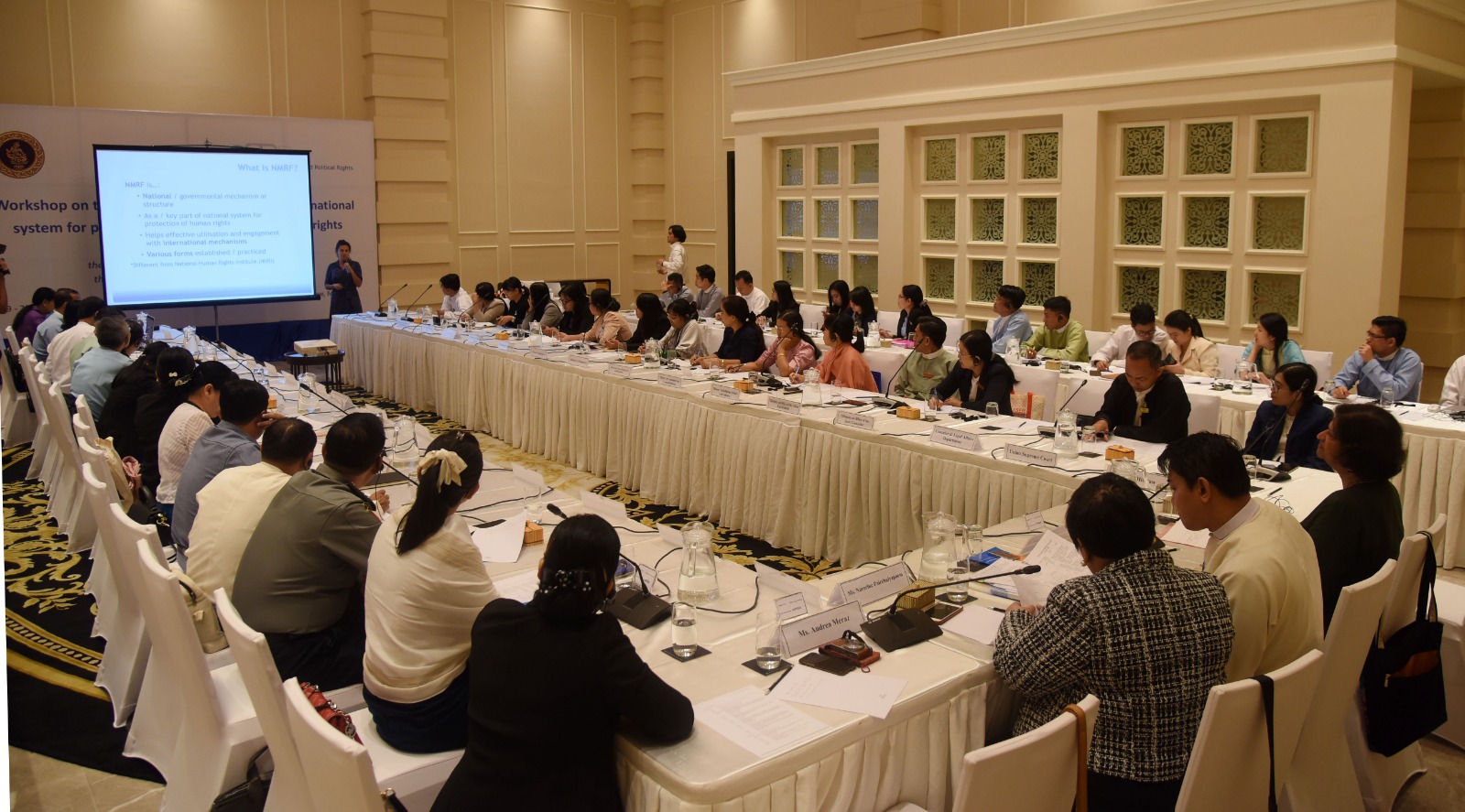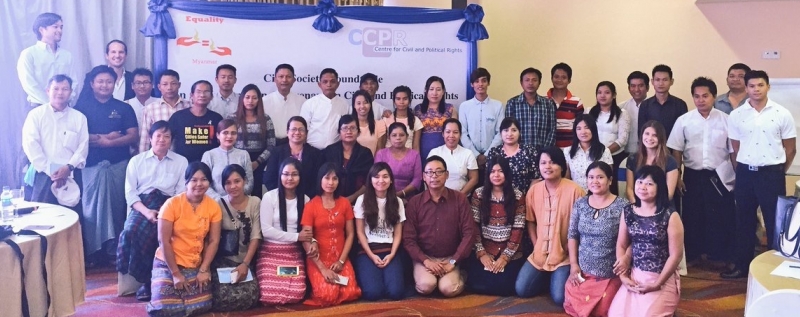Myanmar at HRC 52: several countries' silence is not neutral but indifference
Published on 14 Apr 2023, 08:52 AM
Discussions and the resolution at the 52nd session of the Human Rights Council (HRC)
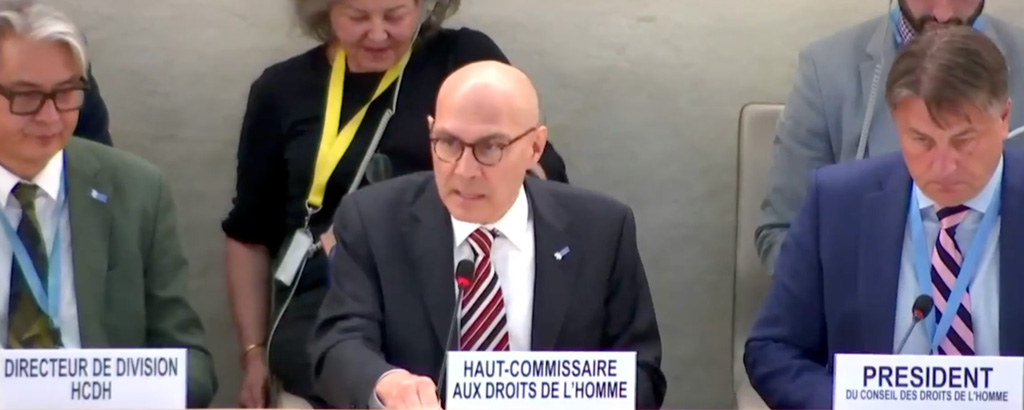 HC Volker Turk briefing the HRC on the alarming Human Rights situation in Myanmar, on 6th March 2023
HC Volker Turk briefing the HRC on the alarming Human Rights situation in Myanmar, on 6th March 2023
52nd session of the HRC took place in Geneva from 27 February to 4 April, where two Interactive Dialogues (ID) were held on Myanmar: one with the UN High Commissioner for Human Rights (HC) on his report (A/HRC/52/21) on 6 March and the other with the Special Rapporteur on Myanmar (SR Myanmar) on his report (A/HRC/52/66) on 20 March.
High Commissioner and Special Rapporteur denounce mounting atrocities against civilians in Myanmar.
High Commissioner, Volker Türk, was blunt in telling the HRC that “the disregard and contempt for human life and human rights that are continuously demonstrated by the military constitute an outrage to the conscience of humanity.” According to his latest report, published on 3rd of March 2023, violence has intensified especially in the north-west and south-east, with the military employing its “four-cuts” strategy: indiscriminate deployment of airstrikes and artillery shelling, mass burnings of villages to displace civilian populations, and denial of humanitarian access. The military also unilaterally adopted rules to decimate anti-coup opposition and to dismantle the expanded civic space that had significantly contributed to Myanmar’s development before the coup. The report attributed these widespread and systematic atrocities to the junta’s leadership, while also documenting violations committed by anti-military armed groups.
Noting that figures of casualties presented in the report likely represent an underestimation of the reality on the ground, High Commissioner called on all parties, including NUG, to adhere to their international obligations strengthen their efforts to ensure civilian protection, ensure full, unrestricted, predictable humanitarian access to all persons in need, and cooperate with international human rights and accountability mechanisms.
Presenting his report to the HRC, the SR on Myanmar, Thomas Andrews, delivered a statement underlining the “remarkable courage and tenacity” of the people of Myanmar in defence of human rights and calling on the HRC to show the people of Myanmar “with words and, more importantly with action, that they are not forgotten, they are not alone.” His report raised the issues of, among others: attacks on civilians; displacement and humanitarian needs; arrest and detention; civic space and fundamental freedoms; the SAC’s plans for a sham election; and international response to those fleeing violence and human rights violation in Myanmar.
The SR called on the military junta to “immediately end attacks on civilians and other human rights violations, halt the use of anti-personnel landmines, release all political prisoners, dissolve the State Administration Council, stand down so that a legitimate government reflecting the will of the people can be formed, and cooperate with international accountability mechanisms.” He also made concrete recommendations to the UN Security Council, all Member States, countries receiving refugees from Myanmar as well as UN agencies, international donors, and international humanitarian organisations.
Resolution of the HRC on Myanmar
The HRC adopted a resolution on the situation of human rights in Myanmar (A/HRC/RES/52/31) on 4 April 2023. It was tabled by EU and adopted without a vote, while some concrete wordings were watered down to secure consensus and it fell short of initiating or advancing concrete measures for accountability of the serious violations of human rights and international humanitarian law, or enforcing global arms embargo and corporate responsibility of business enterprises that provides the Tatmadaw with weapons, revenue and resources. Nevertheless, the text of the resolution included the Council’s first reference to the National Unity Government (NUG) in a resolution; reiterated the condemnation of the military coup; addressed Myanmar military’s atrocity against civilians including deliberate, widespread, indiscriminate and disproportionate use of force, airstrikes and arson attacks, torture, sexual and gender-based violence, attacks against children, execution of political prisoners, arbitrary detention and deaths in custody, among others.
The resolution also extended the mandate of the SR Myanmar for another one year, who is requested to present oral progress report to the 53rd session of the HRC, and a written report to the Third Committee of the UN General Assembly at its 78th session and to the 55th HRC. It also requested the HC to provide a written update to the 56th session and a comprehensive report to the 57th session of the HRC.
What countries said about Myanmar at the HRC 52
At the HRC 52:
- During the ID with HC, 33 countries made statements (in addition to the ones made by the EU).
- During the ID with SR Myanmar, 36 countries made statements (in addition to the ones made by the EU).
Costa Rica made intervention for the first time on Myanmar since the coup in 2021, specifically calling out the Myanmar military for their systemic violations of human rights and international humanitarian law. Particular attention was given to the human rights of the Rohingyas. And Botswana, Malta and South Africa made their interventions for the second time since their first ones at the 29th Special Session. However, there are still a number of countries that remain completely or largely silent at the HRC concerning the situation of Myanmar. Those countries, especially in Africa, Central Asia, Latin America and the Pacific.
More details of the Centre’s data analysis and findings concerning countries’ discussions on Myanmar at the HRC 52 can be found here.
CCPR Centre’s statements at the HRC 52
The Centre submitted a written statement to the HRC 52 which highlighted deteriorating crisis and the collapsing justice system in Myanmar. Referring to the findings of its data analysis, the Centre pointed out the need for the “Countries who so far remained silent … to speak up” underlining “their silence is not neutral but indifference” and and that their inaction is allowing the Tatmadaw to continue its atrocity with impunity.
The Centre also delivered an oral statement during the ID with the HC calling for immediate, coordinated and strengthened actions from the international community, swift implementation of HC’s recommendations by all parties including NUG, as well as the need for addressing corporate responsibility concerning business actors, including State owned or affiliated companies, who are directly or indirectly supplying the Tatmadaw with weapons, revenues and resources.
 HC Volker Turk briefing the HRC on the alarming Human Rights situation in Myanmar, on 6th March 2023
HC Volker Turk briefing the HRC on the alarming Human Rights situation in Myanmar, on 6th March 2023



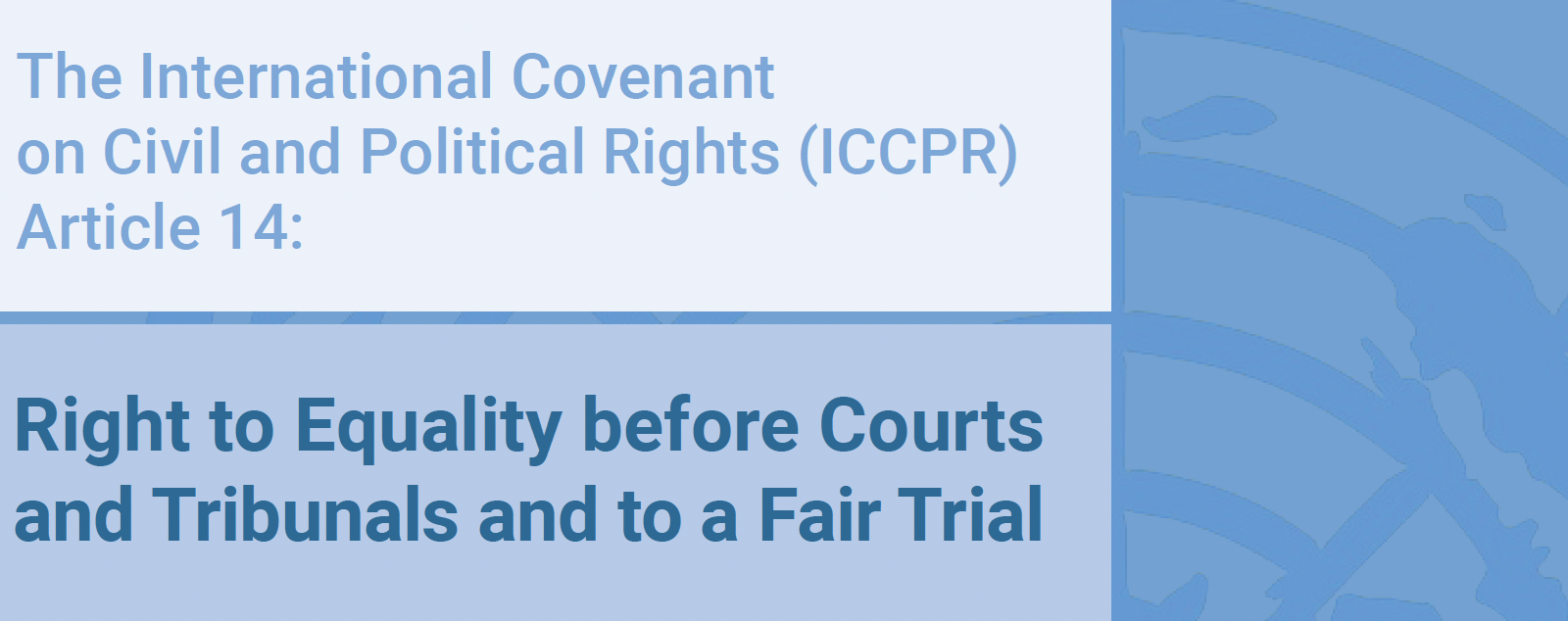
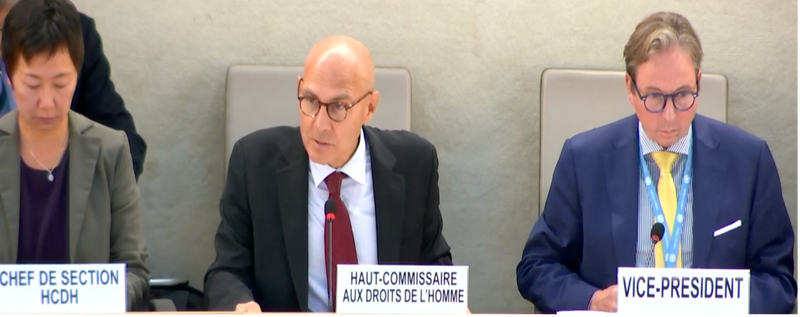
.jpg)
.jpg)
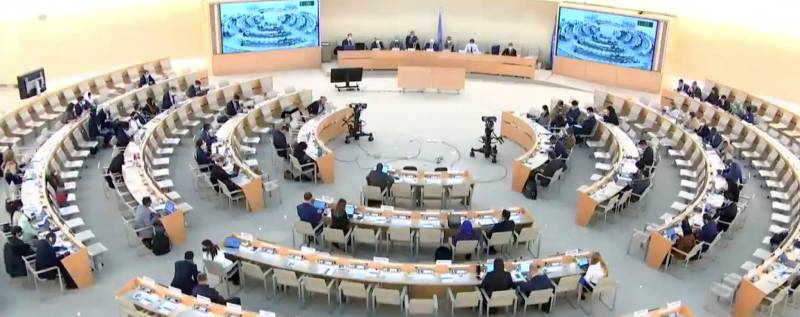
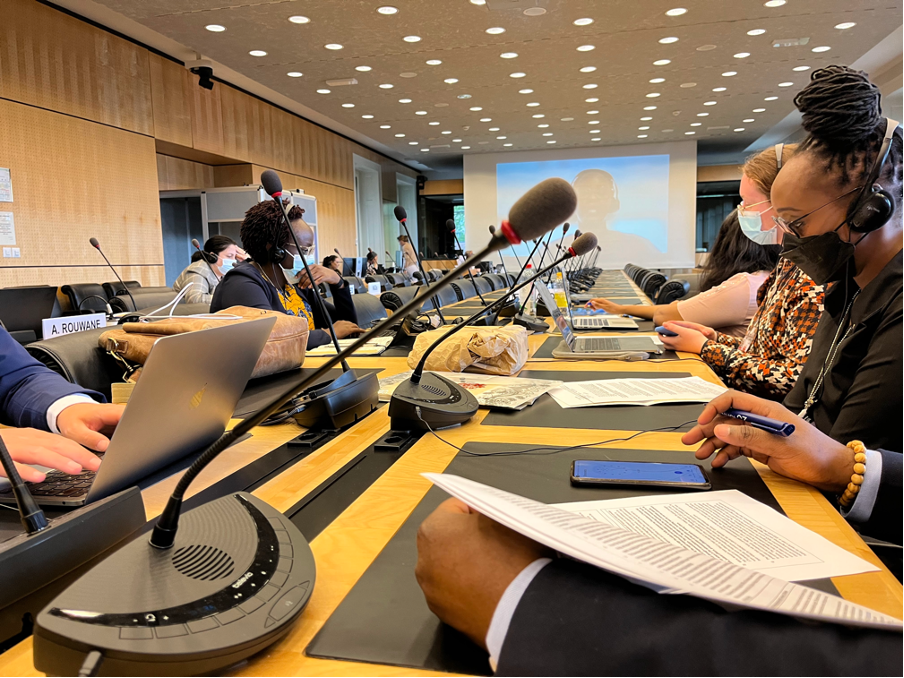
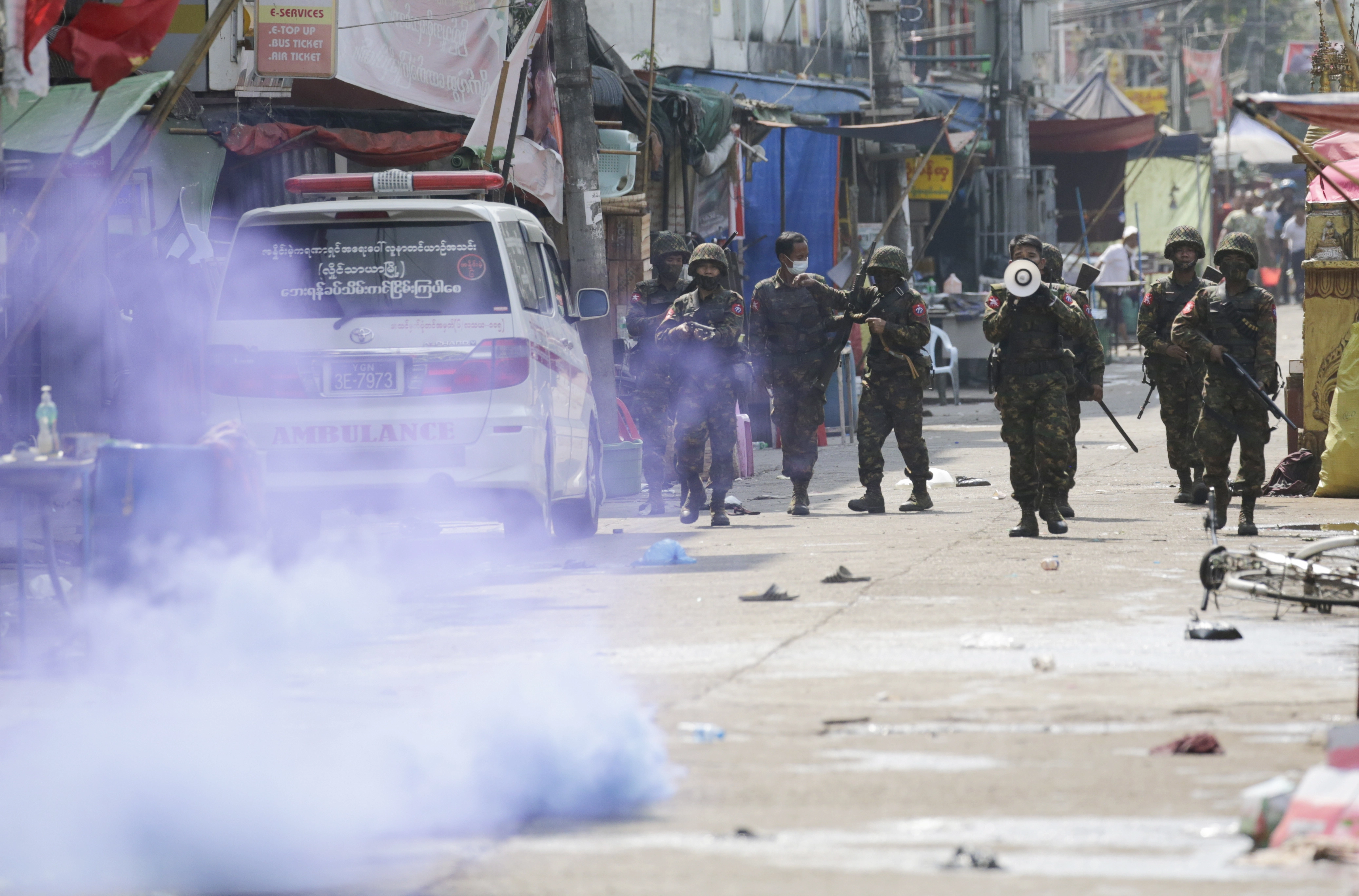
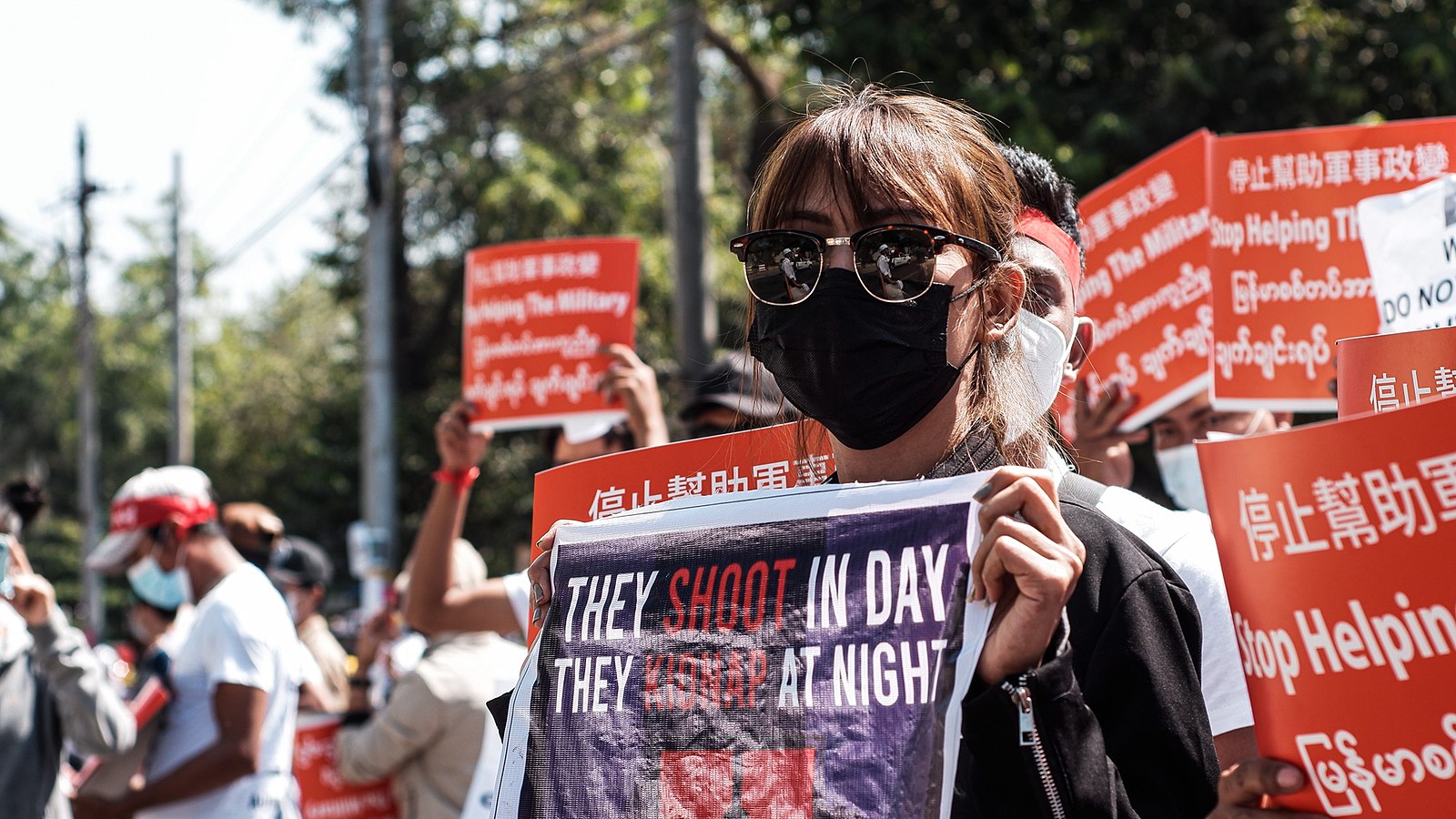
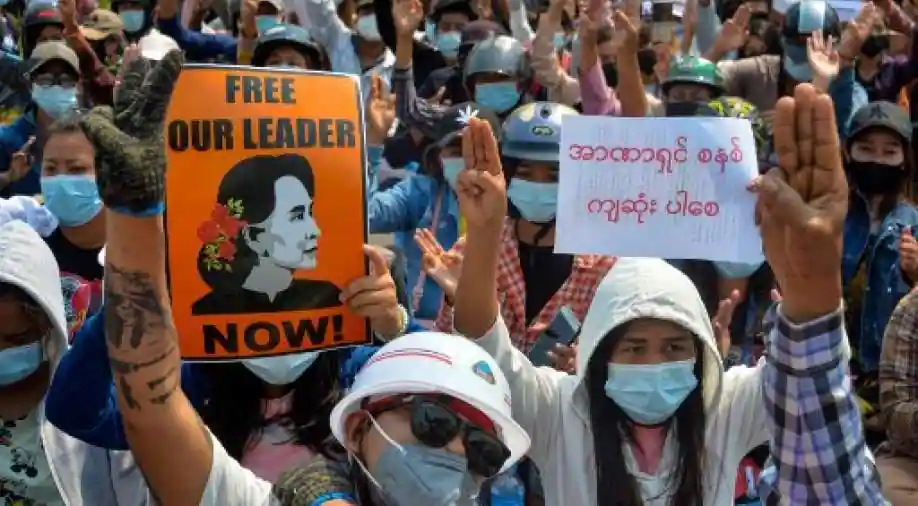
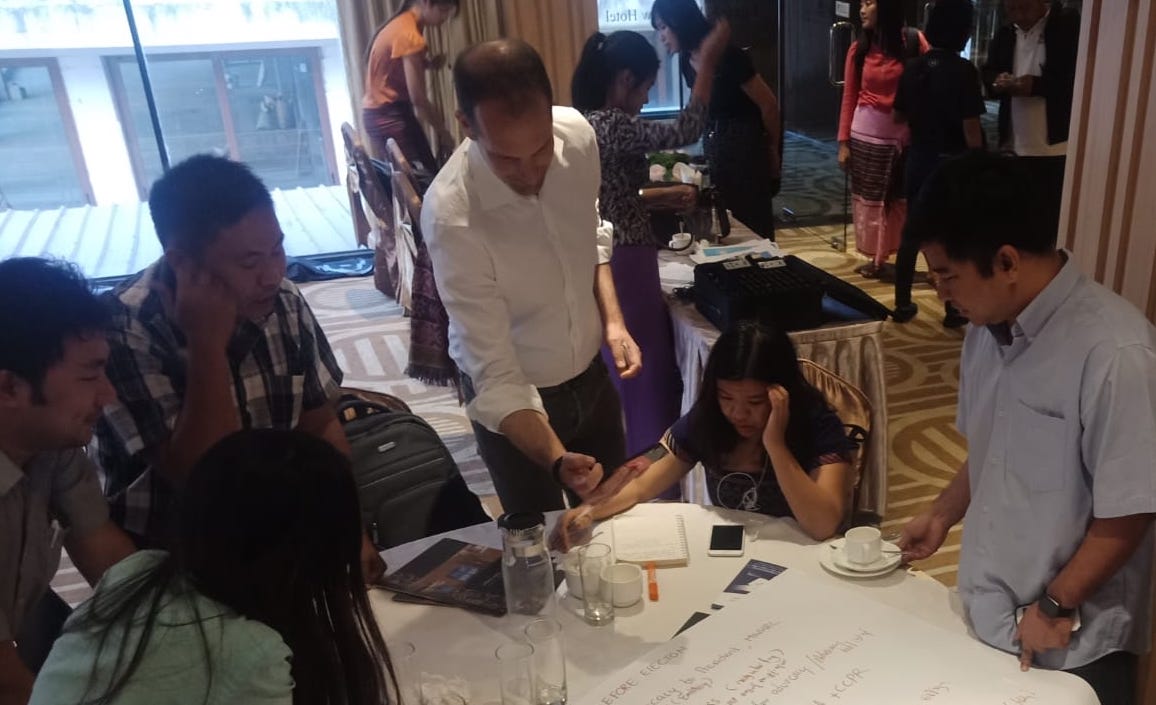
 copy.jpeg)
